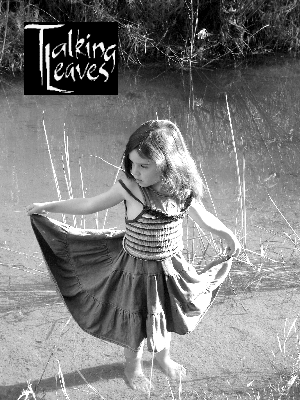This past spring, I discovered what it's like to parent my own parents. I was living overseas for a year and after much persuasion, my parents agreed to meet me in France for a week. It was the first family vacation in years and I was nervous. Suddenly it was my responsibility to read subway signs, order meals, and make sure all four Harmons were on a train together with validated tickets. When my dad had an emergency dental situation, I took him to a dentist, explained the situation to the receptionist, sat with him during the procedure to translate, and even managed to have it billed through my French medical insurance. Was this how my parents felt when I was growing up? The constant pressure to make sure everyone was taken care of was wearing. But my understanding of love was greater. I wanted them to have the best trip possible, and I was willing to do whatever was in my power to see that happen. The choices my parents made for me while growing up came from that same place of unconditional love.
Let's assume that my blood family had been meeting my need for unconditional love in my daily life. Given my choice to live geographically far from them, daily involvement is no longer an option. If my blood family members aren't part of my daily life, who are the people that are with me every day?
I want to talk about Amanda. Amanda and I met during college through an ex-boyfriend of mine (to whom I am eternally grateful). Our various paths brought us together to be housemates and eventually roommates our senior year. As months passed, we began to share more and more parts of our lives with each other. We shopped for groceries together and shared chores. Sometimes we even brushed our teeth together. We began to act as family.
I'd like to express my frustration with the English language. I see a lack of sufficient words to describe my experiences of family. Classic fairy tales, modern magazines, and the Bible all talk about families with words like "marriage" and "divorce," "separation," or "breakup" to identify what's happening within a family. The connotation of these words applies to male/female relationships. Defining who Amanda is to me has become increasingly complicated. I could call Amanda my "best friend" but those words feel inadequate. I had a best friend in first grade, one in eighth grade, and another in high school. Best friends are seasonal but Amanda is not. I could call her my "sister" but risk being misinterpreted. We didn't grow up together and we both have our own unique parents and brothers. Branching away from common language use, I could call her my "heterosexual life partner." It sounds more accurate but politically correct or technical. "Soul mate"? Perhaps "girlfriend"? For now, I've settled on "clan sister." This term suggest a familial bond but not necessarily an immediate blood family connection.
Our culture allows for one choice outside of the family one is born into, and that choice is a spouse. Snow White, Sleeping Beauty, and Cinderella were ill fated in their families of birth but thankfully, they each got to choose their Prince Charming and live happily ever after. Frankly, I'm not buying it anymore. I don't see that choosing one person will meet all my needs for family for the rest of my life. I want to see more options than one. I want to choose to have Amanda as part of my family, as my clan sister.
When a connection with another person grows so strong that no action can break it, family is born. My connection with my family began before I was born. My parents, ready or not, were there to provide for my needs regardless of my actions. I cried so they held me, fed me, or tended to my dirty diapers. They had a choice and they chose for their love to be unconditional.
When I accept others for who they are and don't hold ideas of how I want them to be or act, that is unconditional love. Support and encouragement of a unique path is another part of this love. As my family chose to unconditionally love me, I too have this choice about others. I choose to unconditionally love the family that I was born into and the family I have chosen.
Sarah Harmon is an intern at Lost Valley. She has coordinated the Lost Valley kitchen together with Amanda since the fall of 2004.
©2005 Talking Leaves
Spring 2005
Volume 15, Number 1
Family Values

